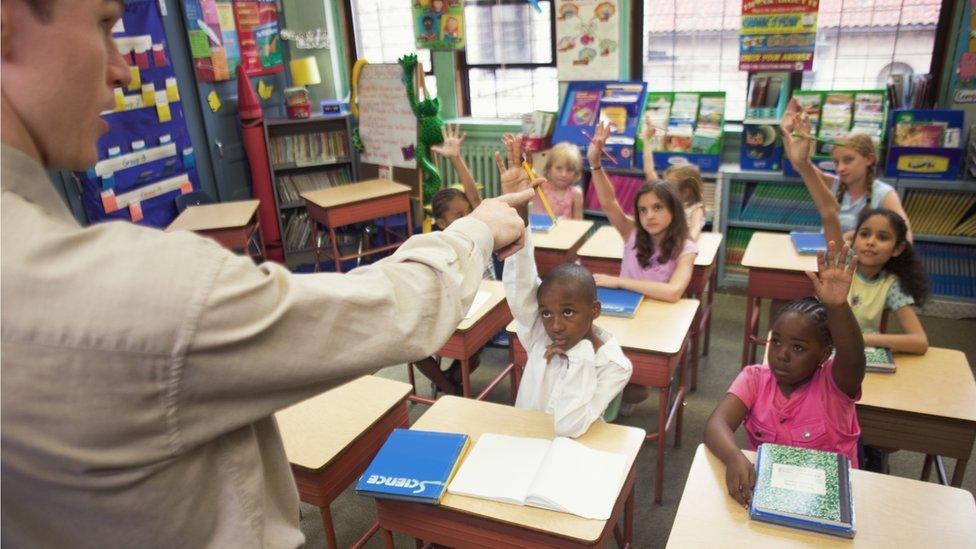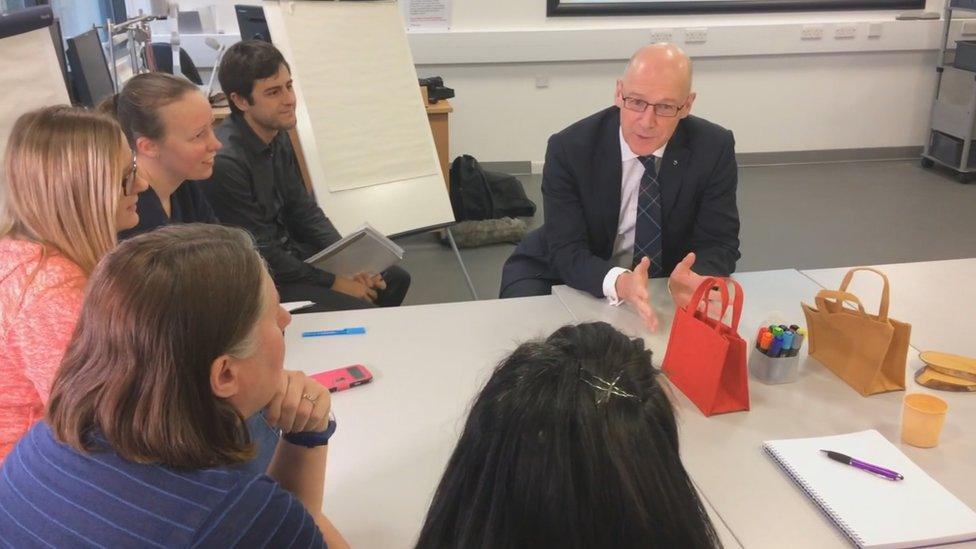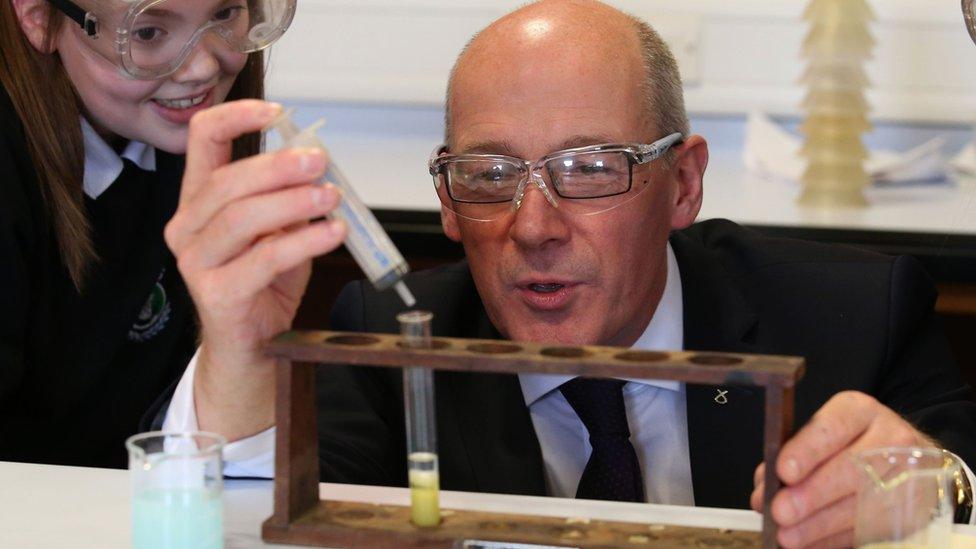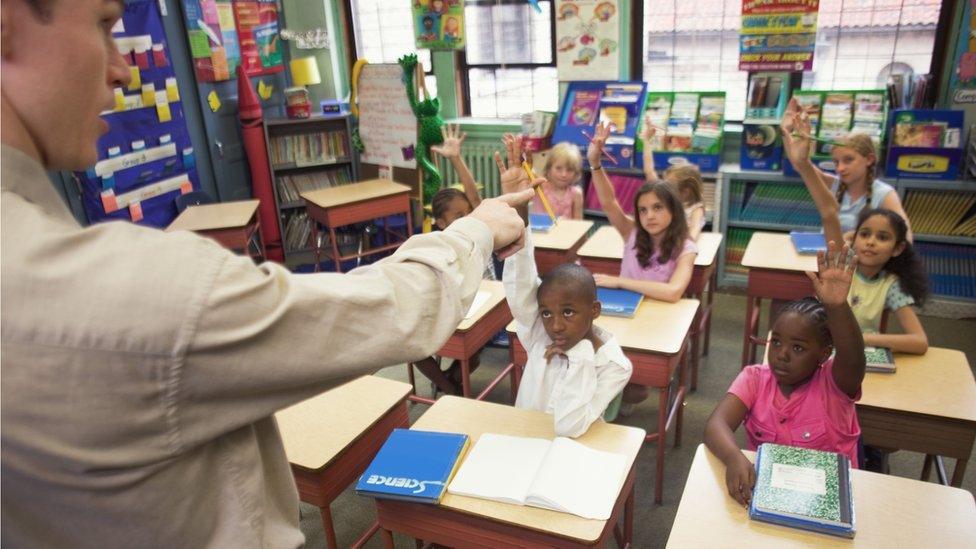What's the thinking behind Swinney's new teacher recruitment plan?
- Published

Some schools have problems recruiting teachers in rural areas
Education Secretary John Swinney has announced what he says is an "innovative plan" to broaden routes into teaching. Here, I take a look at what's behind the raft of new measures.

Several councils have told BBC Scotland about problems recruiting teachers. The problem is a national issue but there is not a national teacher shortage as such.
The overall number of places in teacher training is at an agreed level.
This is about a range of issues, some of them interlinked. Some concern individual subjects - some concern particular parts of the country, especially remote and rural areas.
It can be hard to fill vacancies in rural areas. Often the challenge is to persuade people to actually move to the area - this, of course, is a problem for many employers and not unique to teaching.
Stories about finding a new teacher for a very remote school in a scenic area are the tip of an iceberg. It can be hard to fill vacancies in many parts of rural Scotland. By definition the right candidate will either already live in the area or will need to be persuaded to move there.
Anecdotal evidence suggests there are qualified teachers in the Central Belt who would rather take supply work there - or a job outside teaching - than move to some other parts of the country.
Some councils have schemes to try to address this issue: for example, Moray Council offers free housing for a limited period while Dumfries and Galloway can support staff who want to retrain as teachers so they can eventually fill local vacancies.
In the North East there is a distinct problem. Teachers' pay does not vary across Scotland but house prices in Aberdeen and parts of Aberdeenshire are relatively high. Some in the profession argue there may be a case for "North East weighting" in salaries.
What are the challenges?
Some councils which do not have overall difficulties recruiting teachers have told BBC Scotland they can find it hard to fill vacancies in science, technology and maths.
One of the proposals announced by the government looks at how to attract more graduates in these areas into the profession - this is where there could be controversy.
One challenge is persuading more science graduates - who generally have a wider range of career options than arts graduates - that teaching could be the right option for them.
Scottish councils have to maintain the current ratio of teachers to students - if they do not, they face losing government money. If a teacher leaves, the post cannot easily be closed.

John Swinney made his announcement about teacher recruitment during a visit to the University of Dundee
By definition recruiting new people into the profession and helping them qualify will take time. Some schools and councils, of course, are dealing with the immediate issue of unfilled vacancies.
Entry into the profession in Scotland is guarded jealously by many teachers. The normal pathway for a new teacher is a a postgraduate qualification followed by a probationary year.
Teachers who qualified outside Scotland have to meet specific standards to register with the General Teaching Council for Scotland.
Alarm bells
A minority of teachers south of the border "learnt on the job" through what were in effect graduate training schemes and did not obtain the equivalent of a Postgraduate Diploma in Education. A pilot scheme allows them to obtain "provisional registration" to teach in Scotland while they obtain the qualification.
But any moves which could see what some would regard as "unqualified teachers" in Scottish classrooms is likely to be fiercely resisted.
The idea of combining the probationary year and study for a Postgraduate Diploma in Education (PGDE) for some graduates is already setting off some alarm bells.
One important issue is just what these graduates will be doing in practice in the classroom while they train.
- Published30 November 2016

- Published15 June 2016

- Published11 June 2016
